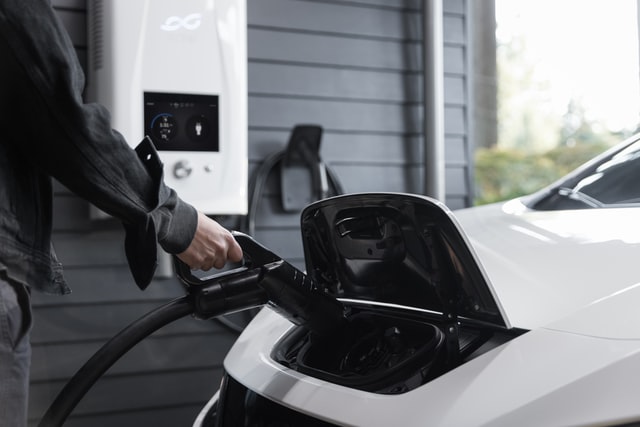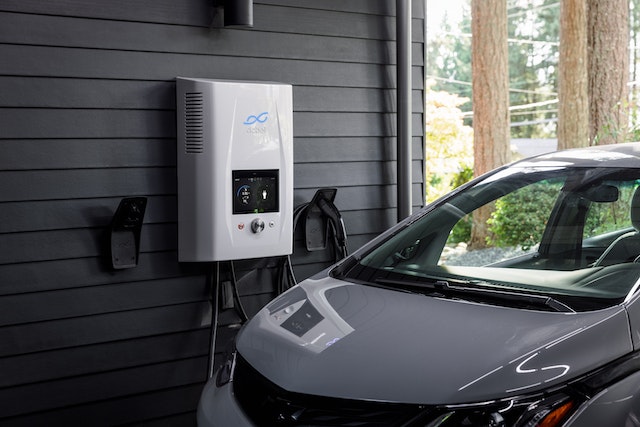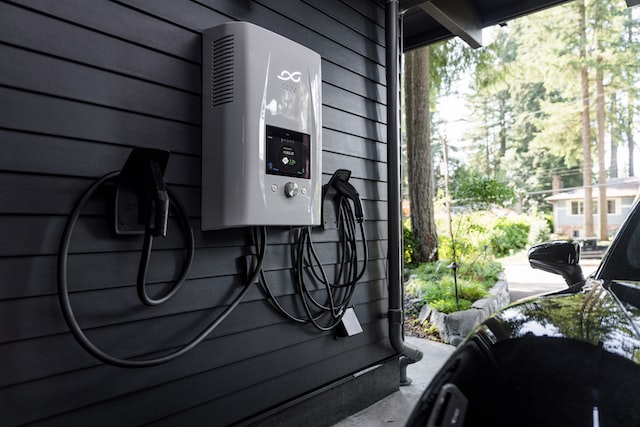Are Electric Cars Worth It?
Electric vehicles are no longer a fringe product. Most carmakers have electric options, including everything from practical cruisers to lightning-fast sports cars.
But are electric cars worth it? This article covers all you need to know, including many pros and cons of electric cars.
Differences Between ICE Vehicles and Electric Vehicles
We use cars for many purposes, but the central goal is to bring people and their things from point a to point b. Some people need additional passenger space, while others prioritize the rear cargo area.
Until recently, most vehicles offered only internal combustion engine (ICE) options. These include gasoline and diesel engines, which use a liquid fuel source to power a combustion engine. Here is a video about how combustion engines work.
But the world is changing. Electric vehicles have dropped the liquid fuel source in exchange for battery packs and replaced combustion engines with electric motors.
This is a monumental shift in technology, one that is full of different costs and benefits. It might lead you to wonder, “Should I buy an electric car?”
It’s crucial to understand electric cars to answer this question. You’ll want to know the advantages of an electric car, plus the hidden costs of owning an electric car.
Let’s dive into some details to discover the answer to, “Are electric cars worth it?”
Do You Save Money With Electric Cars?
According to basic economic principles, when it comes down to brass tacks, price drives many decisions. People work hard for their money and spend it wisely to get the most out of life.
Is an electric car worth it? If you are looking for a lower-cost vehicle that will last you a long time with a low cost of ownership, then electric cars are worth it. But it’s critical to run the numbers for your specific situation.
Fuel Costs Compared to Charging Costs
Most of us have felt the sting of an expensive tank of gasoline or diesel fuel. While it is convenient to be able to refill nearly anywhere in minutes, the cost per gallon is extremely inconsistent, backed by data from the US Energy Information Administration.
Even with stellar fuel efficiency, it can still cost quite a bit to drive an ICE car. For example, if your vehicle gets approximately 25 miles per gallon and gasoline costs around $4 per gallon, it costs $4 to drive 25 miles.
Let’s compare that to electric charging costs. You can watch this video about how to charge electric vehicles to see how it’s actually done.
On average, electrical energy costs as low as $0.13 per kWh at home, and up to $0.60 per kWh at the most expensive Level 3 DC fast chargers. Many electric cars get somewhere around three to four miles per kWh.
Let’s take the worst-case scenario, using the most expensive rate of $0.60 per kWh and a lower efficiency EV that only gets three miles per kWh. For this situation, $4 in charging gets you about 6.7 kWh. At three miles per kWh, that equals about 20 miles for $4.
For $4, the ICE vehicle gets 25 miles, and the EV is only 20. As you can see, EVs aren’t always cheaper to charge than ICE cars are to fill up.
But the most expensive recharge rates are usually for specific fast chargers. Home chargers are often significantly lower, sometimes as low as $0.13 per kWh, plus many charging stations offer $0.20 to $0.40 per kWh rates.
If you use a $0.30 per kWh charger, at home or away, and you have a more efficient EV that gets four miles per kWh, the results are much different. $4 in charging gets you 13.3 kWh, which allows you to drive approximately 53.2 miles.
That’s nearly double what the gasoline car can drive on the same $4. Should I get an electric car? Yes, especially if you can charge for a lower per kWh rate and obtain a more efficient EV.
And the savings don’t stop there.
How Long Do EV Batteries Last?
Another major consideration when answering, “Are electric cars worth it?” is the longevity of the batteries. They are the primary power source, and an EV can’t function without one, just like an ICE vehicle without a fuel tank.
Now here’s the good news. How long do electric cars last? Electric vehicle batteries can last a very long time.
Most EVs use a battery designed to last 10 to 20 years before needing replacement, which can cost anywhere from $2,000 to upwards of $20,000.
How does this compare to an internal combustion engine? Pretty firmly in favor of EVs.
A 5-year, 60,000-mile warranty is decent coverage from an automaker. The average lifespan of most ICE cars reaches around 130,000 miles or just under 11 years, according to the Bureau of Transportation Statistics.
This means that if your EV battery lasts a minimum of 10 years, it has likely survived as long as most ICE cars. If the EV battery lasts up to 20 years, that’s nearly double the lifespan of most ICE engines.
Take a moment to let that soak in. You can get nearly double the life of one battery pack in an EV. If you’re looking for electric car advantages, this is a major one.
On top of that, according to the National Science Foundation, your old EV battery can be repurposed once it is not ideal for your vehicle.
They can provide energy storage for a solar energy system. Some companies are even using them to create large-scale commercial backup power systems.
On the other hand, engines require constant maintenance and upkeep. It’s like that even if your engine runs for 11 years, it will need significant repairs along the way on top of routine oil changes and maintenance.
As a result, the EV batteries can last much longer from the start, provide significant savings on maintenance costs, and almost always have residual value as an energy storage device.
The Difference in Purchase Price
So far we’ve covered charging costs, which can be significantly cheaper than gasoline or diesel fuel costs. And we’ve seen how EV batteries can last a very long time, especially compared to combustion engines and their expensive maintenance.
But if you’ve shopped around for an electric vehicle, you might encounter sticker shock. Many EVs are high price cars, while ICE vehicles can be much lower.
On top of that, an EV home charging system can cost between $1,400 and $4,100 to install, according to the US Department of Transportation.
So what does this mean for you? Are electric cars worth it?
That depends. If you are looking to purchase a very cheap ICE vehicle and are unable to find similar electric vehicles in your price range, it’s probably not economically worth it to go over budget for an EV.
On the other hand, if you’re considering two similarly-priced vehicles, one EV and one ICE, the EV can save you loads of money.
Let’s do a quick example to see why.
If fuel costs $4 per gallon and you have an ICE vehicle that gets 25 miles per gallon, it will cost you about $1,920 to drive 12,000 per year.
Meanwhile, let’s say you have an average charging cost of $0.30 per kWh and an EV with four miles per kWh. That results in $900 to drive 12,000 per year.
Under these conditions, it is about $1,020 cheaper to have the EV per year or about $10,200 over ten years. Even after including the cost of a home charging station, you’re still in the green with just one car.
Additionally, the EV savings increase over time.
If you drive the same EV for 20 years while a similar ICE car only lasts 10, it’s double the value. You’ll save $20,400 in fuel costs, plus any maintenance costs and the price of an entirely new ICE vehicle.
The initial cost of a home charging station might seem painful the first year, but if you use it for 20 years, the monthly price is very low.
Are electric cars worth it? If you can find one in a similar price range as an ICE car and you plan to stick with it long term, then an electric vehicle is well worth the price.
Practical Pros and Cons of Electric Vehicles
We’ve now explored many differences in cost between traditional internal combustion engine cars and modern electric vehicles.
Now it’s time to consider some of the more practical sides of electric vehicle ownership, including some of the downsides of owning an EV.
Speed, Acceleration, and Handling
One of the main differences in electric vehicles is power delivery. Combustion engines can provide a lot of power, but they also require time to build and deliver that power.
Electric vehicles are different. They deliver full power immediately, giving most EVs incredible acceleration and speed. Even the American Chemistry Society has been excited about EV performance.
On top of that, the battery pack is placed low in the vehicle compared to large engines.
This lowers the center of gravity, allowing electric vehicles to have superb handling and cornering abilities. The heavy, low battery packs provide stability through tight corners and can be a blast to drive with their instant acceleration.
This is one of the many benefits of electric cars. And if you’re asking yourself, “Why should I get an electric car?” it’s important to keep this driving difference in mind, especially if you like high-performance vehicles and have a spirited driving style.
Range and Charging Time
But not all things are perfect. One of the most prominent downsides to electric car ownership is the limited range and charging time.
Many electric cars feature a 200 to 300-mile range on one full charge. This can take care of most needs around town, allowing you to recharge at home overnight at a low cost and have another full day of power ready to go each morning.
The hidden costs of owning an electric car become more transparent when completing extended drives.
While you might have an ICE vehicle with a similar 300-mile range, those are easy to refuel and hit the road in minutes at nearly any gas station.
Electric vehicle charging stations are becoming more widespread, but they still require significant time for charging. The charging time depends on the level of charger you have access to and the size of your battery pack.
Level 1 chargers, a standard 110-120 volt outlet, can take anywhere from 10 to 40 hours to charge fully. That is reduced to a much better 3-5 hours on a Level 2 charger, which is what most home charging stations are.
The most rapid charging, Level 3 DC fast chargers, can provide a significant 80% charge in as little as 20 to 40 minutes. These are great for extended road trips, but they’re likely to have the most expensive per kWh cost.
Nonetheless, if you can find Level 3 chargers, extended trips with rapid recharging can happen with electric vehicles.
For most people, daily demands are covered by overnight charging at home. You’ll never have to stop at the gas station before or after work again. And you can tackle most weekend warrior excursions without a problem.
Moreover, the range of electric vehicles continues to expand, and more DC fast chargers are popping up. It is now much easier to find a charging station along major transportation routes and in most cities.
What Happens If My Electric Car Runs Out of Battery?
It’s like running out of fuel. The car doesn’t just stop without warning, it gives you an alert when the battery runs low. Should the battery run low enough, you’ll lose propulsion power, which is noticeable.
Unfortunately, you can’t walk to a gas station and fuel up. You need to pay attention to low battery alerts and get to a charging station quickly. If not you’ll need to be towed to a charging station. For those concerned about running out of battery power, consider carrying a portable charger.
Do Electric Cars Lose Charge When Parked?
Yes, electric cars lose charge while parked, but it happens slowly. It’s a good idea to charge an electric car at least halfway before parking or storing it. The battery can deplete entirely over two to three months if not charged.
Wrap Up: Are Electric Cars Worth It?
As the automotive world continues to provide more electric vehicle options, they become more attractive and economical solutions.
Electric vehicles can have significant cost-per-mile savings, with most at-home charging significantly less than the cost to refuel with gasoline. The range continues to expand, along with DC fast charging stations to allow for extended drives.
While the upfront cost might be higher, the longevity of EV batteries and the lack of routine maintenance allow EVs to have a lower cost of ownership when carried out over a 10 to 20-year lifespan, even after paying for a Level 2 charger home installation.
Are electric cars worth it? In one word, absolutely.



